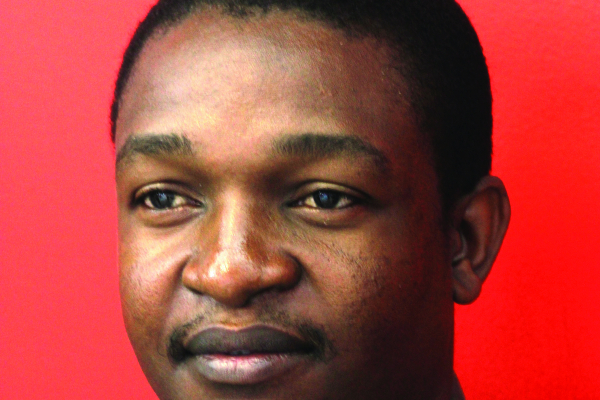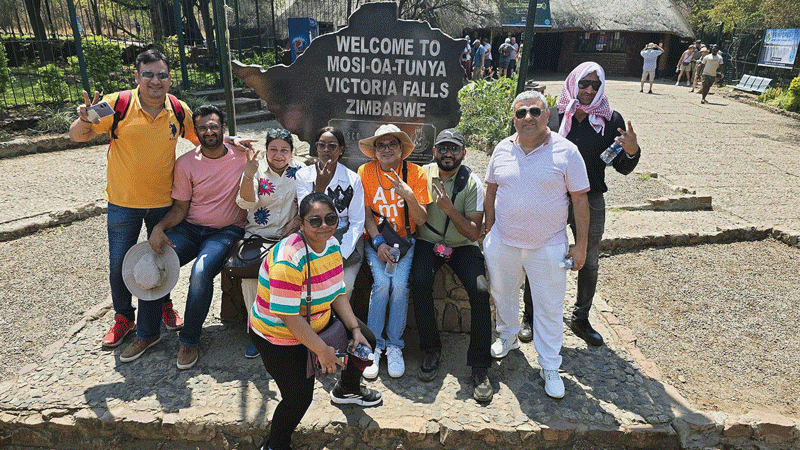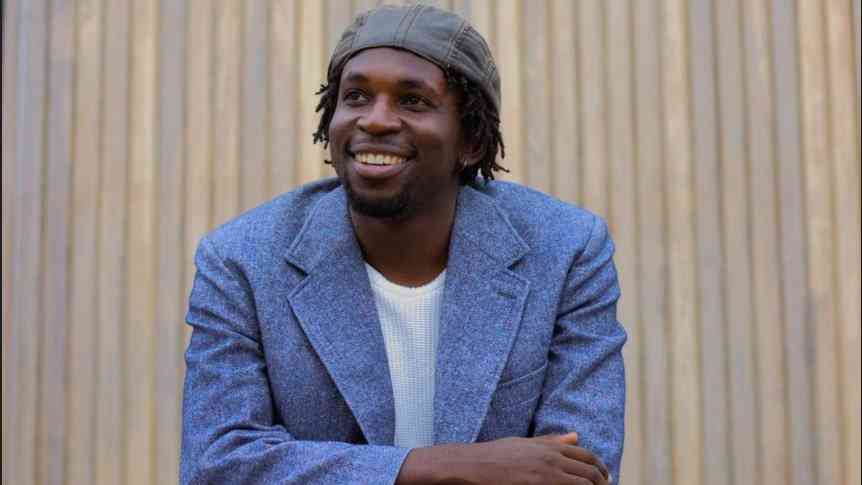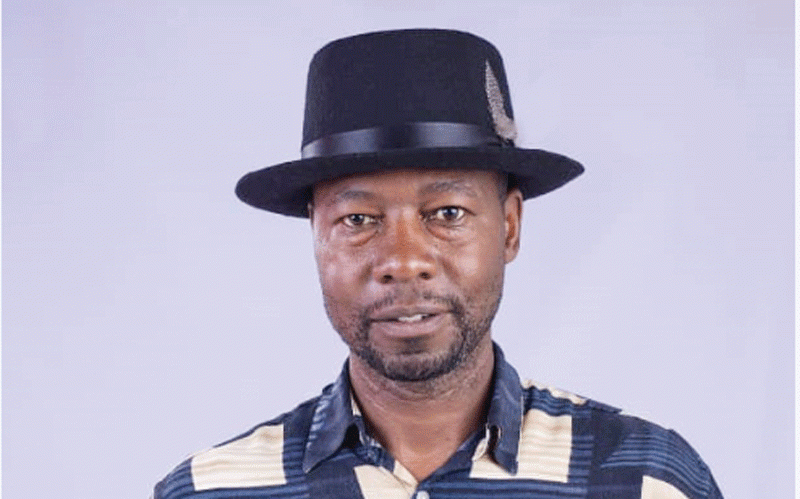
Rabison Shumba (RS) is an international motivational speaker, life coach and author who has published several books. Through his Greatness Factory Trust, he has a personal vision of impacting the lives of children in marginalised communities by creating platforms for career counsel and guidance, information empowerment and capacity building. His areas of expertise include strategy, leadership, personal and professional development. He has travelled to the United States, United Kingdom, China and across Africa on ministry, speaking and business missions. He speaks to NewsDay Features & Lifestyle Editor Phillip Chidavaenzi (ND)…
By Phillip Chidavaenzi
ND: When and how did your writing journey begin?
RS: I trace my writing journey to a time when I lost everything from an ICT business, cars and houses. I was music director at Celebration Choir and on tour in America when this experience happened. That was in 2009.
At my lowest, I was only sleeping for two hours in a day, wide awake and stressing over my next step, wallowing in shame and ridicule, I found out that I derived healing from encouraging others.
I would send inspirational messages and when the choir members came to me asking which book I was getting all this material from, the lights switched on — Aha, I can write a book! And the rest is history.
ND: Who have been your greatest inspirations in terms of writing?
RS: My writing was impacted by several role models whose work I admired. A key mentor who held my hand is Tawafadza Makoni.
- Chamisa under fire over US$120K donation
- Mavhunga puts DeMbare into Chibuku quarterfinals
- Pension funds bet on Cabora Bassa oilfields
- Councils defy govt fire tender directive
Keep Reading
Other voices that have been of influence include the late Myles Munroe and Mike Murdock, who I remain in touch with to this day. Brian Tracy and John Maxwell have also pushed me immensely.
ND: What’s your general overview of the motivational writing landscape in Zimbabwe today?
RS: The motivational writing space has come of age. I am enjoying what I am seeing now with the coming up of a number of newer writers who evolve into speakers. The rise of more voices is great as different people have different expressions even on the same topic.
ND: Are you happy with the quality of their work?
RS: My main concern, however, is that rather than rushing to churn out material, there is need to increase the depth and maximise originality.
It is easy to all sound the same owing to the fact that we probably derive inspiration from similar sources. There is need for increased mentorship of newer writers.
ND: How does your creative process work, from the time you conceive the idea of a book until it is published?
RS: My ideas come on-the-go. This is why I say most, if not all my books, are written on the phone. I rarely start off with a book title.
I write whatever I am inspired to write as it comes. I take ideas to the people before they are in books. I micro-blog on Twitter and other platforms when the idea is raw.
ND: Why do you do that?
RS: For some reason, if I don’t give people content, I lose motivation. I am motivated and challenged by the fact that I have people out there that want to hear from me consistently, hence there is no luxury of getting into a writer’s block.
I harvest what I put out there into a dump on my machine. I refine the material based on people’s comments and the whole publication process kicks in.
ND: What kind of training, if any, does one need to write a motivational book?
RS: I did not need training. I just need to understand my message and simply say it. I do not know of a school that trains motivational writers.
However, you become what you behold. You learn daily from your environment, you increase your awareness, you watch others doing it, you read widely, you talk to people and of course chronicle your experiences. It’s about living your message.
ND: Do one’s life experiences play a role in this? Can someone authoritatively write a motivational book on something they had not experienced?
RB: People are motivated by principles in practice more than principles in theory. There is no better story than one you have experienced. You can narrate other peoples’ stories, but on a scale of effectiveness and impact, this has less weight than your own.
ND: Apart from motivational writing, you have also done some poetry. Can you tell us a little bit about this?
RS: Poetry came as a natural progression and extension of my central message — that of wanting to build people and inspire them to do more. I realised that there is a niche that would rather listen to a poetic piece than endure a motivational book.
ND: Following your experiences in this regard, what would you say is the relationship between fiction and motivational writing?
RS: Motivational writing is more about realistic circumstances than arbitrary and fictional twists and turns. The two are, however, like brick and mortar. They have a sound relationship, as they can complement each other. You can actually tell a fictional folk story to paint a motivational and inspirational picture, thereby, making your point stick.
ND: Over the last few months, you have been doing a lot of things. Do you still find time to write?
RS: Writing for me is a lifestyle. I rarely set solid writing moments as I immortalise ideas as they come. It can be a sentence or two over lunch. It can be a quote I think of while sitting in a meeting. I don’t strive for work life balance, but work life integration. I have a 24-hour highly integrated lifestyle.
ND: Almost every motivational book is endorsed, including some that are badly written. Must every book be endorsed?
RS: An endorsement is a blurb, a message from a reader, usually an established voice, to say “I read this material. I can put my name on the line vouching for the quality and relevance of this original work”.
I encourage people to get other opinions from others, but I never make it mandatory. Some endorsers never read the books opting to throw their weight on a product with a lifelong impact on their personal brands.
ND: You have jumped the big divide from purely motivational writing to poetry with Showers of Inspiration and Svinga Renduri. How did this come about?
RS: I am a spontaneous writer, but very clear about my central theme. Coming out of my desire to see more writers being published, I used social media to pool content into one space. I give myself weird targets at times. I did a poem a day competition and invited others to do the same. In no time we had thousands of original poems in one space. I then pushed to publish the book which became a hit.
ND: Mike Murdock and John C Maxwell follow you on Twitter. What does that mean to you?
RS: Everyone follows people of like interest. The best thing is to be known for something, be consistent and gain credibility.
These gurus did acknowledge my work sometimes. Murdock retweets my quotes. Maxwell replies to my inbox, too. For me this means recognition out there.
It is huge when someone who has achieved so much can inbox me to chat with a village boy with a message.
ND: And the celebrated Dambisa Moyo, author of Dead Aid…
RS: With Dambisa, it started when I tagged her about her book. We had a little engaging debate. I now call her Sis D.
I have never met her, but we are scheduled to meet at a conference later in the year in the US where she is speaking and I am moderating a breakaway session.
ND: You were among the contributors to the book, 101 Ways to Enhance Your Career. Would you say you have tried all the aspects you share in the book, and have they worked for you?
RS: It was a great honour to write a book alongside my mentors such as Brian Tracy.
Being the only African together with 100 career experts in US was an opportunity to send my voice out.
When I wrote my chapter, it was initially out of excitement and pressure to please. After some alterations, I soon realised I was merely writing principles with no backing of experience. I then edited to ensure I capture personal stories.
So yes, I practiced those principles in my career spanning over 22 years.
ND: Any afterthought?
RS: When I wrote my first book, I bought it online and sent Oprah, Bill Gates, Warren Buffet, John Maxwell and a host of other notables. Some of these called to confirm receipt.
I simply said “even billionaire deserve to hear my voice”. I am a little weird in how I function.










